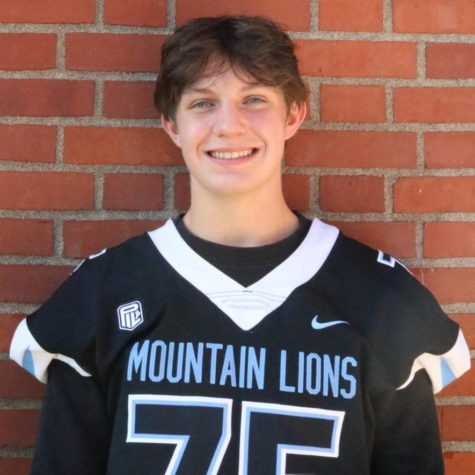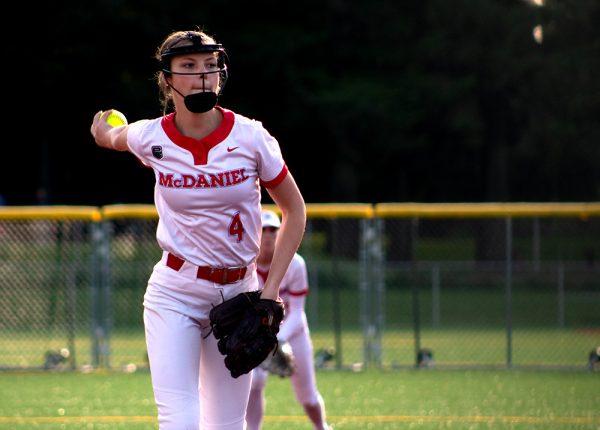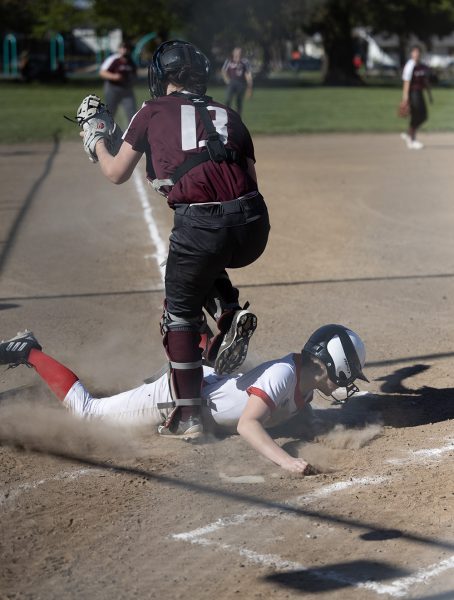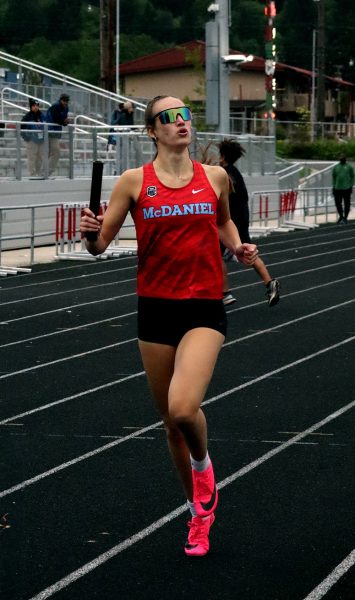Commentary: Scaling back the focus on weight
Content warning: this story contains discussions of eating disorders
Pseudonyms have been used for minors to protect their privacy.
Athletes can be vulnerable to diet culture and eating disorders due to a focus on weight and body image and a desire to improve athletically. Especially in sports with weight categories, there is pressure to monitor your size which can contribute to unhealthy relationships with food. Coaches, trainers, and teammates can do more to promote habits that fuel the body and prevent disordered eating.
It may not be apparent, but even athletes here struggle with disordered eating.
“I never realized it when I was young, but it started off in freshman year. I would eat way past my limit, get really full after and throw up a lot. I would throw up, like, at least three or four times a week,” Leo, a student-athlete, said.
Disordered eating can look like restricting eating, obsessing over weight, and binging and/or purging.
“It’s been really hard because when I finish wrestling and I come home and I weigh myself, I’m like one or two pounds lighter. After I eat, I gain weight extremely easily,” Leo continued, “when I get up on the scale and I’m the same weight as I was this morning, I get mad because I can’t get my weight down quick enough.”
This is one story that sheds light on an issue other athletes face too.
Athletes are super vulnerable to diet cuture.
— Rachel Manor, Sports Dietician
Rachel Manor, a sports dietician who spent eight years spearheading intuitive eating programs at the University of North Carolina Chapel Hill, has worked with a lot of high-level athletes who have been affected by diet culture and disordered eating.
“Athletes are super vulnerable to diet culture, partly because athletes are so motivated to improve their athletic performance,” Manor said.
Lucas Osterpauer, a senior in high school in MN, agreed that the desire to improve in athletics contributes to disordered eating. He participated in cross country and felt the pressure to look a certain way.
“When you want to be number one on the team, it’s like, you can’t control your genetics so what can you control? Well, number one on the team looks like this, so in order to be like them I need to look like them,” Osterpauer explained.
Disordered eating is an impactful issue among young Americans, with approximately 11% of high schoolers diagnosed with an eating disorder, according to the National Association of Anorexia Nervosa and Associated Disorders.
Athletes are even more likely to have disordered eating behaviors than the general population, according to the Journal of Eating Disorders. There is often a hyper-focus on body weight and aesthetics.
This hyper-focus on weight is damaging for athlete’s relationships with food and nutrition, Manor noted. Coaches need to play a role in reducing the harm of these weight-focused sports, whether this be reflecting on how they talk about weight and nutrition or modifying certain practices.
“Coaches can be responsible by keeping their athlete training at [the weight] where they’re supposed to be. I think coaches can do a better job keeping that weight tracking private,” Manor said.
For extra assistance on the medical side of things, schools have athletic trainers that work with student-athletes to ensure they remain healthy and safe. Noah DeLisle, the athletic trainer here, has had some experience and training related to eating disorders.
“You’re looking for the constant signs of malnourishment,” he explained. “A lot of times you’ll see that with athletes that are conscious about their weight, so typically distance runners, wrestlers, gymnasts, all that kind of stuff.”
DeLisle pointed out another contributor to that malnourishment—a lack of access to food.
“With some of our lower socioeconomic status kids, you can run into what is not necessarily an eating disorder, just that they don’t have enough food,” DeLisle remarked. “We gotta be really careful not to call everything an eating disorder right away, because it might not be that, but it could be something similar. It’s not because they don’t want to eat, it’s because they can’t.”
In cases where there is an eating disorder, trainers only have so much they can do because of their capacity and how difficult it is to treat.
“If we start to notice signs or symptoms of that kind of thing, we just refer to doctors because the process of getting that treated is so complicated. There’s the physiological part, but there’s also the mental part. It takes a lot to combat that, it’s very emotional for a lot of these athletes,” DeLisle said.
Part of the problem is that often, these disorders go unrecognized because of how normalized they are. People tend to, without realizing it, support disordered eating by labeling it as “healthy” and “beneficial.”
“It’s so tough to identify with having an eating disorder, partly because in diet culture, disordered eating behaviors are normalized and sometimes praised,” Manor pointed out. “Athletes that are restricting their food, trying to eat ‘clean,’ the average person will be like, ‘That athlete has so much discipline.’ So of course that athlete’s not gonna think that they have a problem or that they have an eating disorder, because those eating disorder behaviors have been praised.”
Osterpauer agreed. Not only was it hard to accept that he had an eating disorder, but recognizing it as a problem was even more difficult.
“I was very much in a state of denial, I didn’t think anything was wrong. When people started noticing, it was almost validating to my disorder. It was almost like, ‘Oh, I’m actually doing something. Something is working.’”
Manor doesn’t necessarily fault coaches for this. She affirmed that coaches have also grown up with diet culture, but still have a responsibility to support their athletes’ health and wellbeing.
“I think the education for coaches, administrators, they need to know not to be praising eating disorder behaviors, weight loss, and restriction. When that happens, athletes aren’t getting help for their eating disorder,” Manor said.
Those working with athletes should refrain from commenting on bodies, praising weight loss, and also do their own research and open up conversations with athletes about disordered eating.
Athletes could use more help in navigating their nutrition and disordered eating, according to Manor and DeLisle. It can be difficult to struggle with something as overwhelming as disordered eating alone, and many people don’t have the knowledge or tools necessary to recover alone.
We tend to be reactionary, not proactive.
— Noah DeLisle, Athletic Trainer
“I did try really hard to stop, but it’s just like, I don’t know how to control it. It’s really hard,” Leo admitted.
Manor believed there are solutions, they just require more funding and attention than currently exists.
“I would love, for starters, for high school athletes to have access to a sports dietician who’s eating disorder informed,” Manor said.
DeLisle acknowledged that disordered eating is a complex problem to solve—there may not be one simple solution. One change he would like to see is more focus on preventative care to keep athletes from ever reaching the point of a diagnosed eating disorder.
“We tend to be reactionary, not proactive,” he explained.
If you are struggling with disordered eating, there are resources available for you. The student health center provides confidential and free therapy.
For coaches and trainers, nationaleatingdisorders.org has free training for how to support athletes who may be affected by eating disorders.

Lane is a senior, and he is passionate about wrestling, transit access and oxford commas. People describe him as intense, driven and hungry. He likes being a journalist because he can shed light on controversial issues and bring the voices of marginalized communities into the spotlight.












